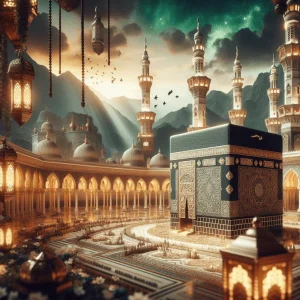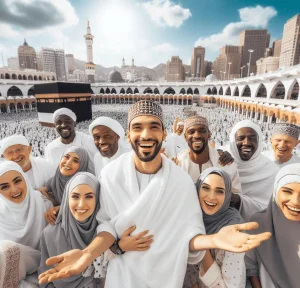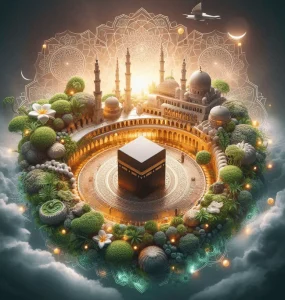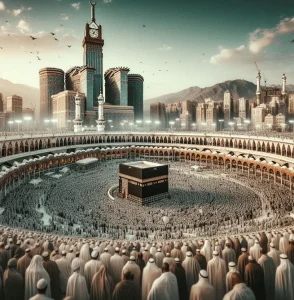Table of Contents
How Islamic Events are not just moments on a calendar; they are the threads that weave the fabric of community life, reinforcing faith and fostering unity among Muslims worldwide. How Islamic Events are observed varies, but their significance remains profound, shaping cultural identities and spiritual journeys.
:max_bytes(150000):strip_icc()/175767329-56a5368e3df78cf77286f708.jpg)
Understanding How Islamic Events Unify Communities
Spiritual Significance
How Islamic Events hold deep spiritual meaning for Muslims, providing opportunities for worship, reflection, and spiritual growth. From the fasting of Ramadan to the pilgrimage of Hajj, each event strengthens the individual’s connection to Allah and the community (Ummah).
Cultural Traditions
Across diverse cultures and regions, Islamic Events are celebrated with unique traditions that reflect local customs and heritage. Whether it’s the festive gatherings of Eid or the somber reflections of Ashura, these traditions enrich the tapestry of Islamic culture.
Communal Practices
Islamic Events emphasize communal practices such as collective prayers (Salat), charitable giving (Zakat), and acts of kindness (Sadaqah). These practices foster solidarity and mutual support within the Muslim community, embodying the spirit of brotherhood and sisterhood.
Key Islamic Events That Strengthen Community Bonds
Ramadan: Fasting and Reflection
Ramadan is the ninth month of the Islamic calendar, observed by fasting from dawn (Suhoor) to sunset (Iftar). Beyond abstaining from food and drink, Ramadan encourages self-discipline, empathy for the less fortunate, and increased devotion through nightly prayers (Taraweeh).
Eid al-Fitr: Celebration of Breaking the Fast
Eid al-Fitr marks the end of Ramadan with festive prayers, feasting, and charitable giving. Muslims dress in their finest attire, exchange gifts, and visit friends and family to celebrate the blessings and spiritual growth achieved during Ramadan.
Hajj: The Pilgrimage to Mecca
Hajj is the annual pilgrimage to the holy city of Mecca, a fundamental pillar of Islam performed in the month of Dhu al-Hijjah. Pilgrims from around the world perform rituals that commemorate the actions of Prophet Ibrahim and promote unity among Muslims regardless of nationality or social status.
Eid al-Adha: Festival of Sacrifice
Eid al-Adha honors Prophet Ibrahim’s willingness to sacrifice his son Isma’il as an act of obedience to Allah. Muslims commemorate this event by sacrificing an animal and distributing the meat to family, neighbors, and those in need, symbolizing generosity and community solidarity.
Mawlid al-Nabi: Celebration of the Prophet’s Birth
Mawlid al-Nabi celebrates the birth of Prophet Muhammad, observed with prayers, recitations of poetry (Naat), and lectures that highlight the Prophet’s exemplary life and teachings. It is an occasion of spiritual joy and learning for Muslims worldwide.
How Islamic Events Promote Social Cohesion
Inclusive Participation
Islamic Events welcome Muslims of all ages, backgrounds, and walks of life, fostering inclusive participation in religious practices and community activities. This inclusivity strengthens social bonds and encourages a sense of belonging among diverse groups.
Strengthening Family Ties
Islamic Events serve as opportunities for families to come together in worship and celebration. Whether gathering for prayers during Eid or sharing meals during Ramadan, these events strengthen familial bonds and transmit religious values from one generation to the next.
Charity and Compassion
Charity (Zakat and Sadaqah) is integral to Islamic Events and promotes compassion towards the less fortunate. During Ramadan, Muslims increase their charitable acts, contributing to community welfare and reinforcing the principle of social justice in Islam.
Impact of Islamic Events on Personal Growth
Spiritual Fulfillment
Participating in Islamic Events offers Muslims opportunities for spiritual fulfillment and personal growth. Through fasting, prayer, and acts of devotion, individuals deepen their faith and strengthen their connection to Allah, seeking spiritual enlightenment and purification.
Moral Development
Islamic Events emphasize moral virtues such as patience, humility, and empathy. By practicing these virtues during Ramadan and other events, Muslims strive to cultivate a higher moral standard in their daily lives, contributing positively to society.
Community Engagement
Islamic Events encourage active engagement in community service and social activism. From organizing food drives to volunteering at local mosques, Muslims contribute to the betterment of their communities, embodying the teachings of Islam through practical actions.
Future Outlook: How Islamic Events Continue to Evolve
Embracing Technology
In the digital age, Islamic Events are adapting to technological advancements with live streams of prayers, virtual lectures, and online charity platforms. These innovations enhance accessibility and global participation in religious observances.
Preserving Cultural Heritage
Efforts to preserve and promote the cultural heritage associated with How Islamic Events include educational programs, cultural exhibitions, and digital archives that showcase Islamic art, literature, and traditions to a global audience.
How Islamic Events
In conclusion, How Islamic Events serve as pillars of faith and community, uniting Muslims worldwide through shared rituals, values, and cultural expressions. From the spiritual discipline of Ramadan to the pilgrimage of Hajj, these events foster social cohesion, strengthen family bonds, and promote personal growth. As Muslims continue to embrace the teachings of Islam through How Islamic Events, they contribute to a global tapestry of faith, compassion, and solidarity that transcends borders and enriches humanity as a whole.





More Stories
Tales of Wonder: Unraveling the Islamic Heritage Mystery
In the Footsteps of Greatness: Journeying Through Islamic Heritage Sites
Echoes of History: Rediscovering Islamic Heritage Around the World